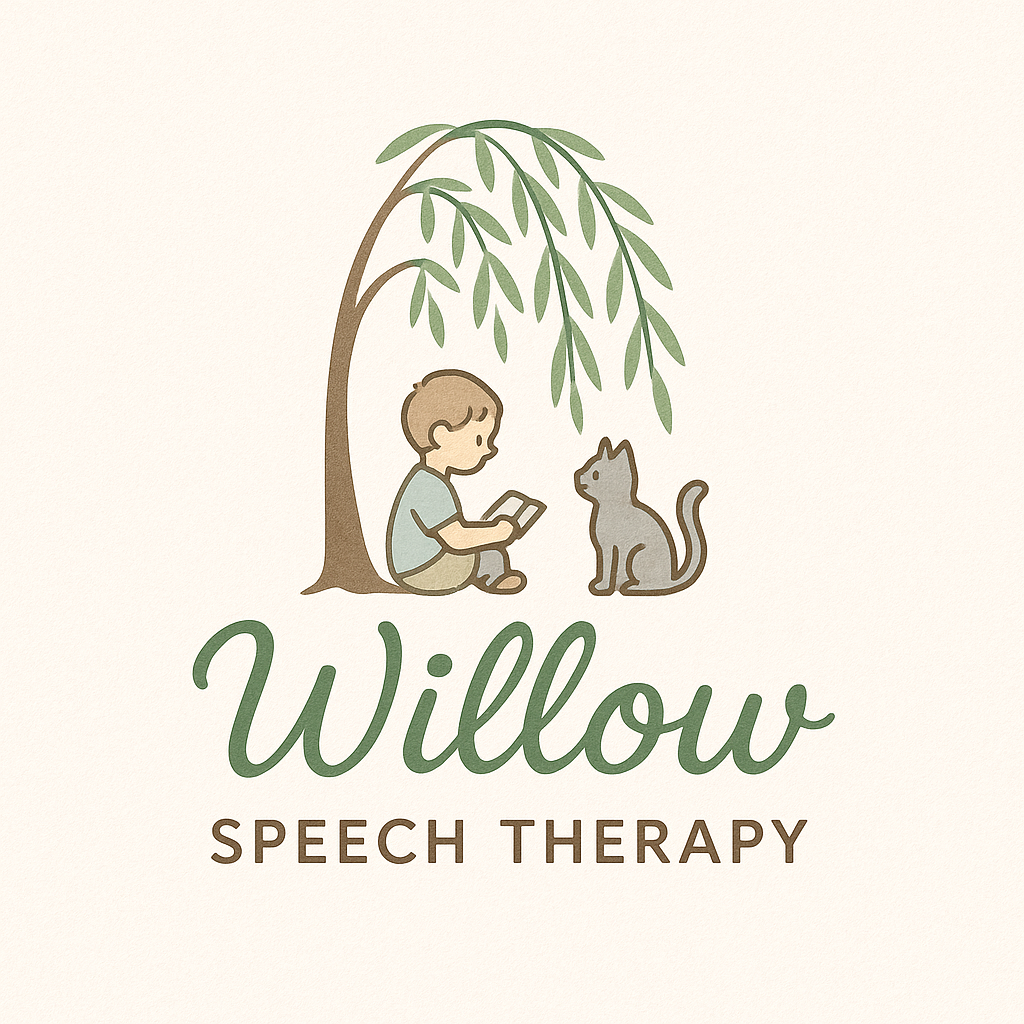FAQs
-
Toddlers develop language rapidly, but it’s common for parents to wonder whether their child is on track. According to the American Speech Language and Hearing Association (ASHA), here are some typical milestones:
By 12 months, your child should:
Use gestures like waving and pointing
Understand simple words like “no” and “bye-bye”
Say a few basic words like “mama” or “dada”
By 18 months, they might:
Say 10-50 words
Point to familiar objects and people when named
Begin combining two words (i.e. “want ball”)
By 2 years, your toddler should:
Use 50+ words
Combine two or more words into simple phrases
Be understood by familiar adults about half the time
If your toddler isn’t using words yet, has limited vocabulary, struggles to follow simple directions, or gets frustrated when trying to communicate, a speech-language evaluation can help give us more information. Early intervention can make a big difference in speech and language development!
-
Preschoolers are busy expanding their vocabulary, forming sentences, and learning how to interact socially. According to ASHA, children in this age range typically:
Speak in sentences of 3-5 words by age 3
Are understood by familiar adults most of the time
Ask and answer simple questions (who, what, where)
Follow 2-3 step directions
Use language to tell short stories, ask for help, and play with others
If your preschooler:
Is hard to understand, even by family
Struggles to express ideas in complete thoughts
Leaves out sounds in words or substitutes one sound for another often
Has difficulty following directions or understanding questions
Shows limited interest in social interaction or pretend play
…they may benefit from speech therapy. A speech-language evaluation can tell us more.
-
Once children enter school (kindergarten, 5+ years old), strong communication skills are critical for learning, reading, and socializing. ASHA notes that school-aged children should be able to:
Speak clearly and be understood by both peers and adults
Use a wide range of vocabulary and complex sentence structures
Follow multi-step directions
Tell and retell stories in logical order
Understand and use language for problem solving, humor, and conversation
If your child:
Has difficulty being understood by teachers and/or peers
Struggles to express thoughts clearly in speaking or writing
Mixes up sounds (i.e. “wabbit” for “rabbit” or “fink” for “think”)
Has trouble understanding instructions or academic language
Avoids speaking or seems socially withdrawn
…they may benefit from speech therapy. Even subtle challenges can impact academic success and self-confidence. Speech therapy can help your child thrive both in and out of the classroom.
-
Yes! Many children benefit from both school-based and private speech therapy services. While school services are focused on supporting your child’s ability to access the academic curriculum, private therapy offers a more individualized and flexible approach that targets your child’s unique communication needs.
At Willow Speech Therapy, we can:
Provide more frequent, intensive, and one-on-one support than what’s available at school
Address goals that may not be included in your child’s IEP, such as social communication, articulation for personal confidence, or early language development
Use a play-based, family-centered model
Collaborate with your child’s school-based SLP (with your permission) for a team approach to progress
-
Yes! If your child was evaluated by the school and did not qualify for services, they can absolutely still receive private speech therapy.
Schools use specific eligibility criteria based on how communication deficits impact a child’s ability to access the general education curriculum. That means a child may have noticeable speech or language challenges- but if those challenges aren’t determined to significantly impact his or her academic performance, they may not qualify for school-based services.
At Willow Speech Therapy, we consider how communication impacts your child’s everyday life— including social interactions, emotional well-being, confidence, and family routines— not just their performance in the classroom. We can work on goals that are important to your family, even if they fall outside of what a school would address.
If you have concerns about your child’s communication, we are here to help— whether or not they qualified for support through their school.
-
Willow Speech Therapy is a private pay practice. Payment is due at the time of service, and we accept all major debit and credit cards, including Health Savings Account (HSA) cards.
While we do not bill insurance directly, we are happy to provide a superbill upon request— a detailed receipt that you can submit to your insurance provider for possible reimbursement, depending on your out-of-network benefits.
